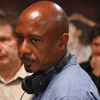- Film Title (Original): Lumumba
- Film Title (Spanish): Lumumba
- Film Title (In English): Lumumba
- Country Of Origin: France / Belgium / Germany / Haiti
- Year Of Completion: 2000
- Running Time: 115 Min.
- Format/Color/Bw: Dvd / Color
- Language : French / Lingala
- Subtitles: Spanish Subtitles
- Country Spotlight: Australia
Australia con 6 peliculas - Country Spotlight: Francia
Fracia con 3 peliculas - 127 Horas
Film Title (Original): 127 Horas - 3 to the Rescue
Film Title (Original): 3 Al Rescate - A Small Act
Film Title (Original): A Small Act - Better Mus' Come
Film Title (Original): Better Mus' Come - Boys of Summer
Film Title (Original): Boys of Summer - Buscón: Searcher/Swindler
Film Title (Original): Buscón - Carancho
Film Title (Original): Carancho - Countdown to Zero
Film Title (Original): Countdown to Zero - Eyes Wide Open
Film Title (Original): Eyes Wide Open - Jean Gentil
Film Title (Original): Jean Gentil - José Martí: The eye of canary
Film Title (Original): José Martí - Rain of Hope
Film Title (Original): Pluie D'espoir - Love Child
Film Title (Original): La Hija Natural - La Yuma
Film Title (Original): La Yuma - Leo's Room
Film Title (Original): El Cuarto de Leo - Lumumba
Film Title (Original): Lumumba - Máximo Gómez: Son of Fate
Film Title (Original): Máximo Gómez Hijo del Destino - Monica and David
Film Title (Original): Monica and David - Moloch Tropical
Film Title (Original): Moloch Tropical - Mother and Child
Film Title (Original): Mother and Child - Never Let Me Go
Film Title (Original): Never let me Go - Nuremberg : Its Lesson for Today
Film Title (Original): Nuremberg: Its Lesson for Today [The Schulberg/Waletzky Restoration] - Oceans
Film Title (Original): Oceans - Portraits in a Sea of Lies
Film Title (Original): Retratos en un mar de mentiras - Presumed Guilty
Film Title (Original): Presunto culpable - Restrepo
Film Title (Original): Restrepo - Puzzle
Film Title (Original): Rompecabezas - Revolution
Film Title (Original): Revolución - Seraphine
Film Title (Original): Seraphine - Sometimes In April
Film Title (Original): Quelques jour en avril - Sins of my Father
Film Title (Original): Pecados de mi padre - Southern District
Film Title (Original): Zona Sur - The American
Film Title (Original): The American - The Man Next Door
Film Title (Original): El Hombre de al lado - To Catch a Dollar: Muhammad Yunus Banks on America
Film Title (Original): To Catch a Dollar: Muhammad Yunus Banks on America - To the Sea
Film Title (Original): Alamar - The Loss
Título Original: La Pérdida - The Man by the Sore
Título Original: L'homme Sur Les Quais - Traces of the Trade:
A Story from the Deep North
Film Title (Original): Traces of the Trade: A Story from the Deep North - Waste Land
Film Title (Original): Waste Land - Heart and Soul The Documentary
Film Title (Original): Voz y Alma El Documental
FILM CREDITS:
- Director: Raoul Peck
- Producer(s): Jacques Bidou
- AssociateProducer: PhilippeBober, RichardBoidin, DianaElbaum, Georges Goldenstern
- Screenwriter: Raoul Peck, Pascal Bonitzer
- Cinematographer: Bernard Lutic
- Editor: Jacques Comets
- Music: Jean-Claude Petit
- Cast: Eriq Ebouaney, Alex Descas, Maka Kotto, Cheikh Doukouré
FILM SYNOPSIS:
Made in the tradition of such true-life political thrillers as MALCOLM X and JFK, Raoul Peck's award-winning LUMUMBA is a gripping epic that dramatizes for the first time the rise and fall of legendary African leader Patrice Lumumba.
When the Congo declared its independence from Belgium in 1960, the 36-year-old, self-educated Lumumba became the first Prime Minister of the newly independent state. Called "the politico of the bush" by journalists of the day, he became a lightning rod of Cold War politics as his vision of a united Africa gained him powerful enemies in Belgium and the U.S. Lumumba would last just months in office before being brutally assassinated.
Strikingly photographed in Zimbabwe, Mozambique and Belgium as civil war once again raged in the Congo, the film vividly re-creates the shocking events behind the birth of the country that became Zaire during the reign of Lumumba's former friend and eventual nemesis, Joseph Mobutu.
DIRECTOR’S BIOGRAPHY:

Born in Haiti, raised in Zaire (Congo) and France, he additionally is well-suited for the international following he has earned. He remains one of few filmmakers that successfully produce documentaries and feature films. No doubt his early travels throughout the world have informed his particular aesthetic as a filmmaker. Educated in Haiti, Zaire (Congo), France, and Germany, Peck initially studied engineering and economics at Berlin University. He worked as a journalist and photographer from 1980 to 1985. In 1988 he received his film degree from the Berlin Academy of Film and Television. Since graduation, Peck has developed short experimental works, socio-political documentaries, and features based on fact as well as fiction. His feature L’Homme sur les quais (1993) (The Man by the Shore) was the first Haitian film to be released in theatres in the United States; this feature was also selected for competition at the 1993 Cannes Film Festival. A true internationalist, Peck divides his time between Europe and the United States and for a brief time in the 1990s he served as Haiti’s Minister of Culture. For his international vision, historical and political insights, along with his potent artistic vision, he has been richly rewarded. In 1994 he was awarded the Nestor Almendros Prize by the Human Rights Watch in New York; and in 2001 he received the organization’s Lifetime Achievement Award.







